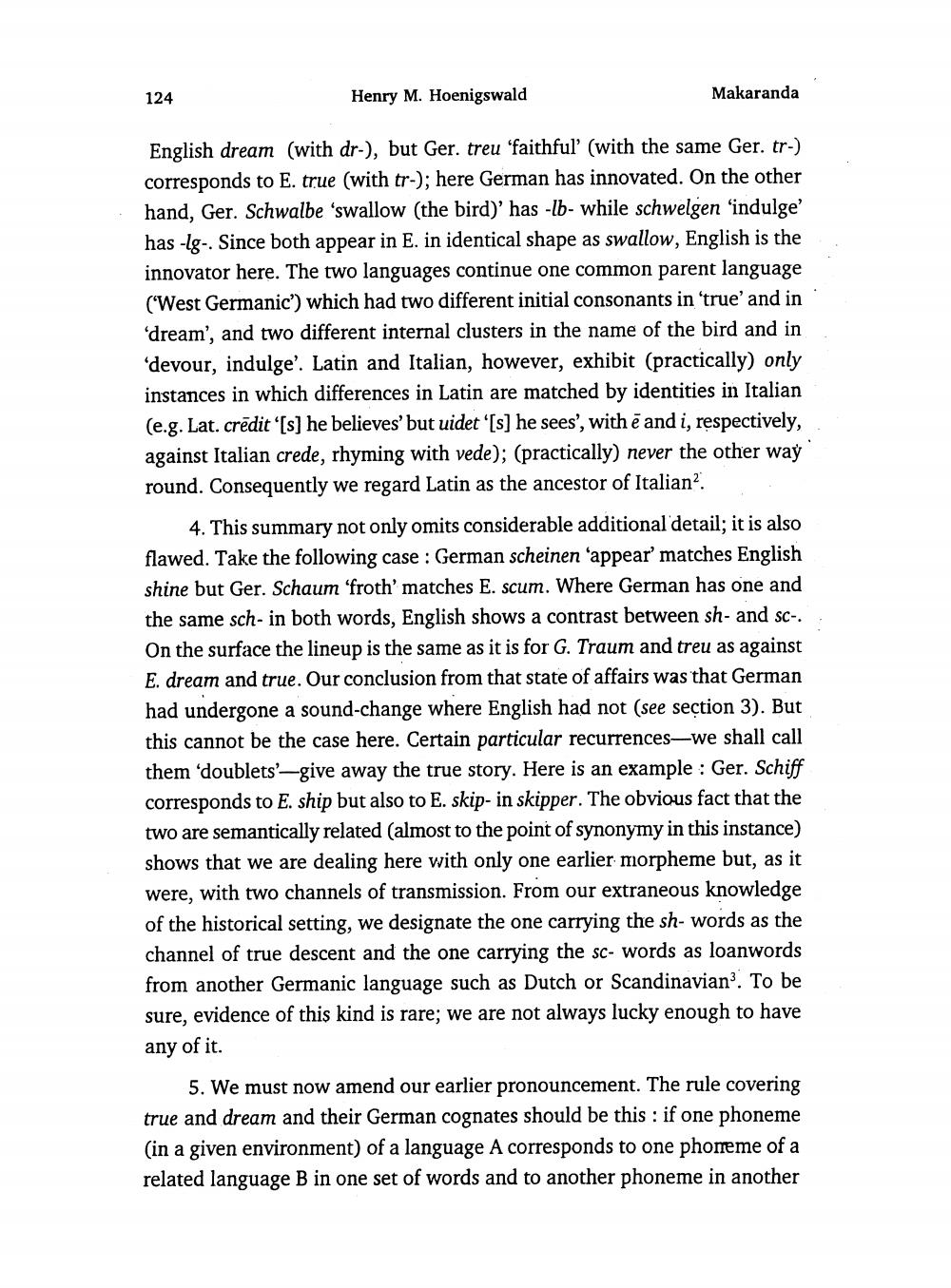________________
124
Henry M. Hoenigswald
English dream (with dr-), but Ger. treu 'faithful' (with the same Ger. tr-) corresponds to E. true (with tr-); here German has innovated. On the other hand, Ger. Schwalbe 'swallow (the bird)' has -lb- while schwelgen 'indulge" has -lg-. Since both appear in E. in identical shape as swallow, English is the innovator here. The two languages continue one common parent language ('West Germanic') which had two different initial consonants in 'true' and in 'dream', and two different internal clusters in the name of the bird and in 'devour, indulge'. Latin and Italian, however, exhibit (practically) only instances in which differences in Latin are matched by identities in Italian (e.g. Lat. crédit '[s] he believes' but uidet '[s] he sees', with ĕ and i, respectively, against Italian crede, rhyming with vede); (practically) never the other way round. Consequently we regard Latin as the ancestor of Italian2.
Makaranda
4. This summary not only omits considerable additional detail; it is also flawed. Take the following case: German scheinen 'appear' matches English shine but Ger. Schaum 'froth' matches E. scum. Where German has one and the same sch- in both words, English shows a contrast between sh- and sc-. On the surface the lineup is the same as it is for G. Traum and treu as against E. dream and true. Our conclusion from that state of affairs was that German had undergone a sound-change where English had not (see section 3). But this cannot be the case here. Certain particular recurrences-we shall call them 'doublets'-give away the true story. Here is an example: Ger. Schiff corresponds to E. ship but also to E. skip- in skipper. The obvious fact that the two are semantically related (almost to the point of synonymy in this instance) shows that we are dealing here with only one earlier morpheme but, as it were, with two channels of transmission. From our extraneous knowledge of the historical setting, we designate the one carrying the sh- words as the channel of true descent and the one carrying the sc- words as loanwords from another Germanic language such as Dutch or Scandinavian3. To be sure, evidence of this kind is rare; we are not always lucky enough to have any of it.
5. We must now amend our earlier pronouncement. The rule covering true and dream and their German cognates should be this: if one phoneme (in a given environment) of a language A corresponds to one phoneme of a related language B in one set of words and to another phoneme in another




